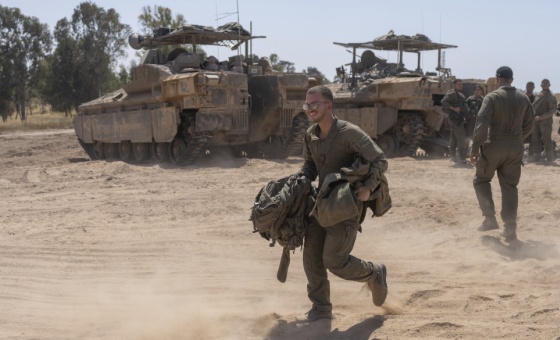This is the last article you can read this month
You can read more article this month
You can read more articles this month
Sorry your limit is up for this month
Reset on:
Please help support the Morning Star by subscribing here
BERNIE STEER, the last of the Pentonville Five, is laid to rest today.
He died on July 20, the day before the 50th anniversary of the arrest of five dockers — Vic Turner, Derek Watkins, Cornelius Clancy, Tony Merrick and Steer — in 1972, which led to threats by the TUC of a general strike and contributed to the subsequent fall of Edward Heath’s Tory government.
Bernie Steer and Vic Turner were two of the main leaders of the powerful Dock Stewards Committee and the government action was seen as an attempt by it to break their influence.
It was an attempt doomed to failure as trade unionists throughout the country flocked to their support.
The five men were arrested on July 21 on the instructions of the government’s newly established National Industrial Relations Court (NIRC), which issued a writ following an application from the Midlands Cold Storage Company aimed at stopping picketing at the Chobham Farm container depot where dockers were holding an unofficial strike.
The men refused to obey the writ and continued with their action. Private detectives had been retained to identify the leaders.
Three of the dockers were arrested on the picket line during the day, Steer that night at home and Turner when he led a protest outside Pentonville where the men had been taken.
So great was the reaction against the imprisonment — with walkouts as trade unionists flocked into London to demonstrate outside the prison, threatening to break down the gates, and with the TUC angered at what it saw as an attack on union rights calling for a general strike to be held on July 31 — that the government finally bowed to pressure and was forced into a climbdown.
The official solicitor was sent in to look at the case and get the men out of jail. This he duly did, applying to the Court of Appeal on the grounds that the NIRC had “insufficient grounds” to deprive the men of their liberty, that the private detectives’ evidence was also “insufficient.”
On July 25, as London saw one of its greatest demonstrations, the five men, having listened to days of chanting and noise from outside, were surprised to find themselves being met by the official solicitor before being shown out. The reaction outside was tumultuous as the five men were lifted onto the shoulders of their comrades.
Steer was to tell the demonstrators that it was the trade union movement that got them out, not the official solicitor. He had made the same point to the wardens and fellow prisoners telling them that the demonstrators would be back every day till they came out.
The reputation of the NIRC was in tatters, and along with it that of the government.
Steer came from a family of dockers, his brother Pete and an uncle were dockers. He had started out in the West India Docks and had transferred into the Royal Docks where he joined Jack Dash and Vic Turner on the official liaison committee.
Following the departure of Dash and the introduction of shop stewards into the industry, Steer, by now a member of the Communist Party, and Turner became chair and secretary of the Royal Group of Docks Shop Stewards Committee.
Steer was a member, and officer of the National Amalgamated Stevedores and Dockers, which later merged with the Transport and General Workers Union which eventually evolved into Unite.
The dockers were known for their strong views, and the two men were the most powerful leaders in the London docks with reputations as being hard men who would fight hard for their members.
As such they were seen by employers as being a constant threat to the changes they were trying to bring in to alter employment practices and conditions. Gradually the docks as an industry and employer came to an end as containerisation was brought in.
Steer born in Poplar on September 8 1938 was brought up in poverty following the death in action of his father in 1942. The family weren’t evacuated and the memories of the bombing, doodlebugs and hardship left an indelible mark on him.
His daughter Lyn Crank remembered: “He grew up knowing what was wrong and was determined to fight it. He fought for what was right, he was a rebel with a cause.”
Those causes would find him on picket lines and giving support to others; he was made an honorary miner.
He was never scared of having a row. Ronald Webb, an old friend and colleague, remembers one such instance on the dockers’ demonstration against Barbara Castle’s In Place of Strife.
“He was carrying the banner with a stevedore and they rowed all the way through the march as to who was the strongest. Everyone remembered it.”
His beliefs also ran off on his family, he had met Maureen on a train on his way home from national service and he married her on August 18 1962.
Bernie’s funeral takes place today, on what would have been their diamond anniversary. They were to have three children and five grandchildren and two great grandchildren. All of them were brought up to give help and to work in the community.
Steer, a member of the Communist Party, remained active in the labour movement and was involved with the 1980s TUC initiative of setting up a network of unemployment centres.
Steer helped with the work carried out around the Haringey Centre, alongside Jeremy Corbyn and Bernie Grant.
He was a rower and was elected to the executive of Poplar and Blackwall Rowing Club, and ran in several of the Boston marathons. Despite a peripatetic education, he was a great collector of knowledge, and remained well-read to the end.
On his retirement he became a full time grandpa, passing on his information to his grandchildren. They have written of what it meant to them.
“My grandpa stood for what he believed in with no compromise. He cared about other people and wanted the world to be a fairer place.” Another writes: “It is safe to say that my granddad, no matter how he felt, would always try and put a smile on someone’s face. He stood up for his beliefs so that values survive.”
Many of those who worked with him and demonstrated outside Pentonville, and were helped by him, will be at the funeral. And appropriately a shop stewards’ banner will be on display.
PETA STEEL











